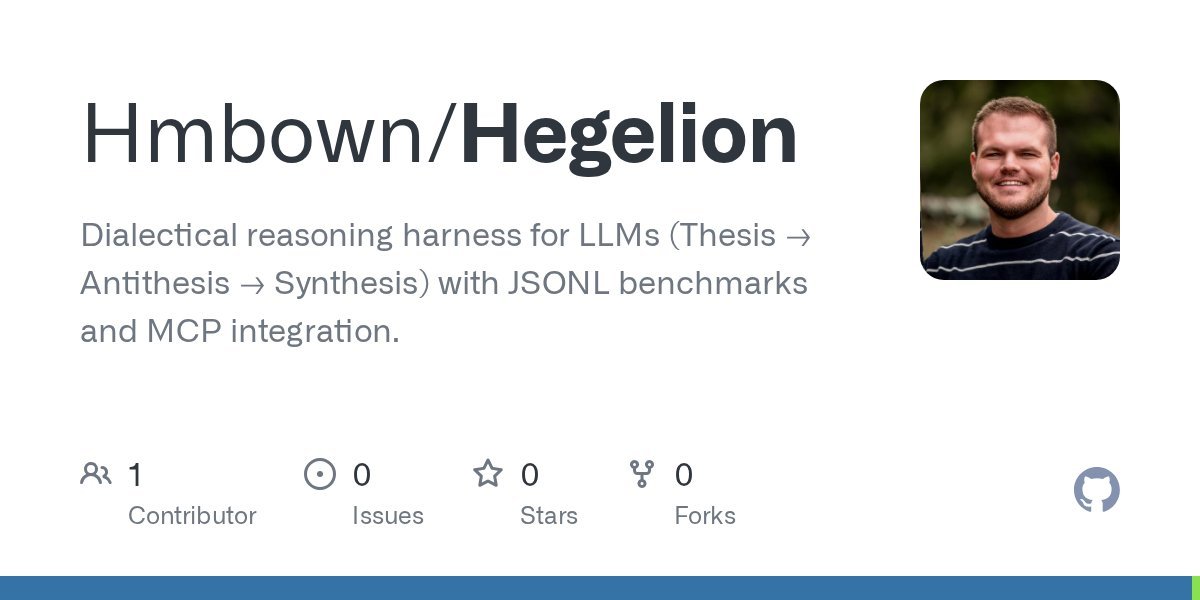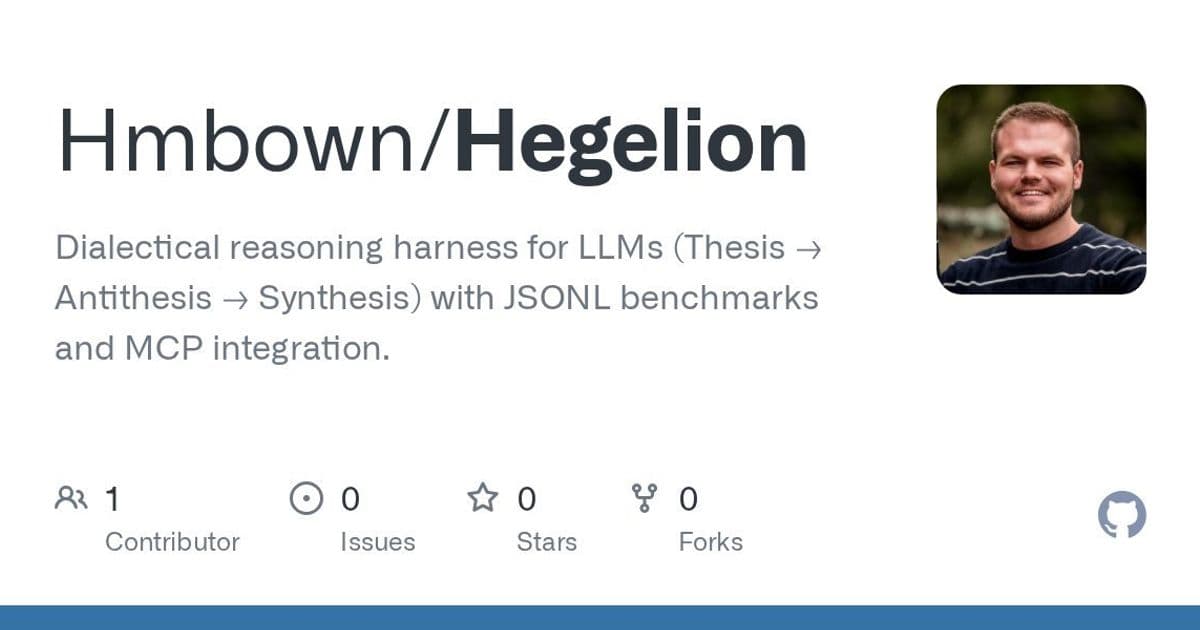Hegelion introduces a novel framework that applies Hegelian dialectics to large language models, forcing them through thesis, antithesis, and synthesis phases to uncover deeper insights. This open-source tool outputs structured JSON with contradictions and research proposals, empowering developers and researchers to explore AI's reasoning limits. By integrating with popular backends like Anthropic and OpenAI, it bridges philosophical rigor with practical AI applications.
Hegelion: Revolutionizing AI Reasoning with Dialectical Depth
In the rapidly evolving landscape of artificial intelligence, where large language models (LLMs) often deliver quick but superficial answers, a new tool named Hegelion is challenging the status quo. Inspired by the philosophical dialectics of Georg Wilhelm Friedrich Hegel, Hegelion structures LLM interactions into a three-phase reasoning loop: thesis, antithesis, and synthesis. This approach not only surfaces hidden assumptions and contradictions but also generates actionable research proposals, offering a more nuanced perspective on complex queries.
The project's GitHub repository, maintained by developer Hmbown, positions Hegelion as a production-ready infrastructure for enhancing LLM outputs. At its core, Hegelion takes any query and processes it through the dialectical method. First, the LLM establishes a thesis—an initial position or argument. Next, it critiques this stance in the antithesis, highlighting weaknesses, contradictions, and alternative viewpoints. Finally, the synthesis reconciles these tensions, producing a refined understanding. The result is a structured JSON object, the HegelionResult, which includes the full reasoning trace, lists of contradictions, research proposals, and metadata like timings and backend details.

Why Dialectics Matter in AI
Single-pass LLM responses, while efficient, frequently overlook the multifaceted nature of real-world problems. Hegelion addresses this by mimicking human critical thinking, where ideas evolve through opposition and resolution. For instance, when queried 'Can AI be genuinely creative?', Hegelion's output might posit in the thesis that AI mirrors human creativity through pattern recognition. The antithesis counters that AI lacks true intent, acting merely as a 'sophisticated mirror.' The synthesis then proposes a co-creative human-AI process as the path forward, complete with contradictions like the 'Redefinition Fallacy' and a testable research proposal on iterative dialogues.
This method has profound implications for AI development. Developers can use Hegelion to stress-test models, revealing biases or logical gaps that might otherwise go unnoticed. In evaluation pipelines, the structured outputs enable automated metrics, such as average contradictions per query or internal conflict scores, fostering more robust model assessments.
Practical Integration and Use Cases
Hegelion's versatility shines through its multiple entry points: a command-line interface (CLI), Python API, and integration with tools like Claude Desktop via MCP servers. Installation is straightforward via PyPI with pip install hegelion, and it supports backends including Anthropic's Claude (default), OpenAI's GPT series, Google's Gemini, local Ollama models, and custom HTTP endpoints.
Use cases span research, decision-making, education, content creation, and ideation. In research, it identifies reasoning gaps; in education, it teaches critical thinking; and in creative workflows, it explores ideas from opposing angles. For model builders, the hegelion-bench tool processes batches of prompts, outputting JSONL files ripe for analysis.
Here's a simple Python example to run a dialectical query:
import asyncio
from hegelion import quickstart
async def main():
result = await quickstart("Is privacy more important than security?")
print(result.synthesis)
print(f"Contradictions: {len(result.contradictions)}")
asyncio.run(main())
The output follows a canonical schema, ensuring compatibility with tools and eval systems. Metadata tracks backend specifics and timings, while optional debug traces expose internal metrics like conflict scores.
{{IMAGE:3}}
Empowering Developers and Researchers
Hegelion's structured data is particularly valuable for advanced applications. In retrieval-augmented generation (RAG), it provides deeper contextual understanding. For safety analysis, it flags flawed reasoning patterns. And in scientific inquiry, its research proposals generate hypotheses with testable predictions.
The project emphasizes data ownership: outputs are plain JSONL, analyzable with standard tools like jq or Pandas, avoiding vendor lock-in. Configuration is environment-driven, with .env files for API keys and backend selection.
Despite its strengths, Hegelion has limitations. The three-phase process triples the cost and latency of single queries, and output quality hinges on the underlying LLM. Complex queries may yield varying effectiveness, but graceful degradation ensures partial results even on failures.
{{IMAGE:4}}
Hegelion represents a thoughtful fusion of philosophy and technology, inviting the AI community to engage with reasoning in a more deliberate way. As LLMs grow more integral to decision-making and innovation, tools like this could redefine how we probe their depths, ultimately leading to more reliable and insightful AI systems.
Source: Hegelion GitHub Repository, accessed and analyzed for this article.
{{IMAGE:2}}

Comments
Please log in or register to join the discussion